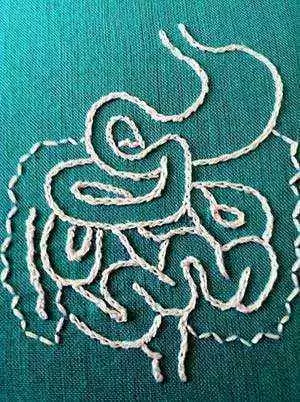Celiac.com 06/19/08 - Today in most modern countries, children are being raised in bacteria-free environments, yet studies are seeing a rising incidence of autoimmune disease and allergies. Previous studies have found that Finnish children are six times more likely to have type 1 diabetes and a five times higher rate of celiac disease than Russian children despite equal genetic susceptibility. Over-cleanliness and life-style may be promoting the higher prevalence of these disorders.
The Diabimmune study, backed by the EU with EUR 6 million in financing, is asking whether by removing all bacteria, we are not actually weakening our children's immune systems. Led by the University of Helsinki, researchers from 5 European countries will collaborate on Diabimmune, a study involving some 7000 children which will last from 2008-2013. The study will focus on the development of the intestinal bacterial flora after birth, the effect that the living environment has on the composition of the bacterial flora, the effect infections have on the maturation of the human immune system, and the operation of the white blood cells that regulate immune responses. In addition, the researchers will examine whether the protection conferred by infections against autoimmune and allergic responses is associated with the overall infection load or due to specific microbes. It is expected that the results will provide much needed insight into celiac disease, other autoimmune disorders, and allergies.
Celiac.com Sponsor (A12):
For the first time, researchers will comprehensively monitor the composition of microbes populating the intestines of developing infants and study how the microbes may influence the development of allergies and autoimmune disease, including celiac disease. Finally, conclusive evidence may be found which may answer the question of whether gut bacteria is involved the pathogenesis of celiac disease.
Are immune systems becoming lazy?
European Research Headlines 18 June 2008
Open Original Shared Link
Researchers from five countries to test hygiene hypothesis with EU funding
University of Helsinki 29 May 2008
Open Original Shared Link








Recommended Comments
There are no comments to display.